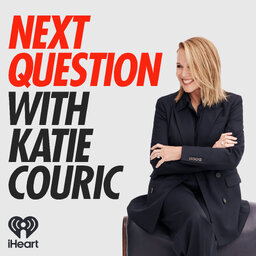What can a movie about a pandemic teach us about the real thing?
In these unprecedented times, when tensions, anxieties and fears about the coronavirus are high, many people are finding comfort in a surprising source: Steven Soderbergh’s 2011 thriller “Contagion.” It’s about a mysterious and highly contagious virus that crosses continents, causes city-wide lockdowns, throws government protocols into chaos, upends daily life, and instills an almost universal state of dread across the globe. Sound familiar? Katie talks with “Contagion” screenwriter Scott Burns and one of the lead consultants on the film, Dr. Ian Lipkin, the John Snow Professor of Epidemiology at Columbia University’s Mailman School of Public Health, about why the movie is having such a moment, how they managed to create something so prescient, and ways our own pandemic nightmare might end. The pair also touch on their latest collaboration: With help from the original “Contagion” cast, Scott Burns and the Mailman School of Public Health have created PSAs to help spread the word about social distancing, hand washing, and other life-saving measures in the age of COVID-19. You can check those out at ControlTheContagion.org and spread the word on social media with #ControlTheContagion. Sign up for Katie Couric's morning newsletter, Wake-Up Call, at KatieCouric.com.
Learn more about your ad-choices at https://www.iheartpodcastnetwork.com
 Next Question with Katie Couric
Next Question with Katie Couric


